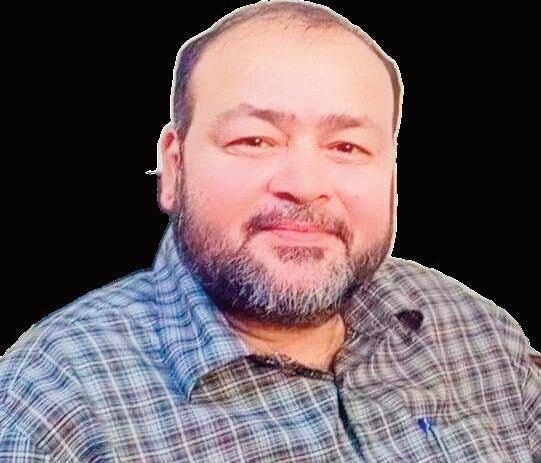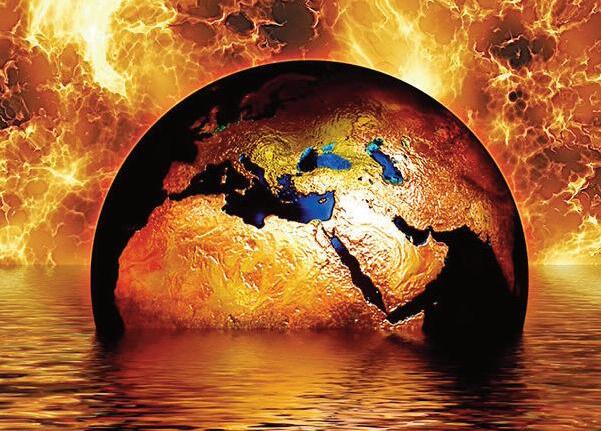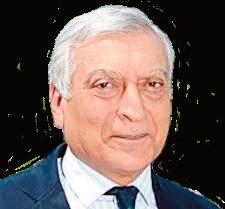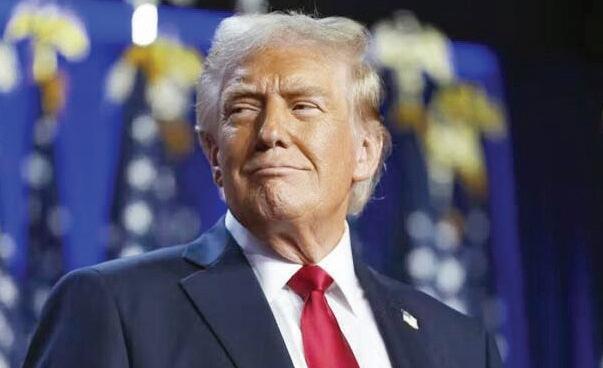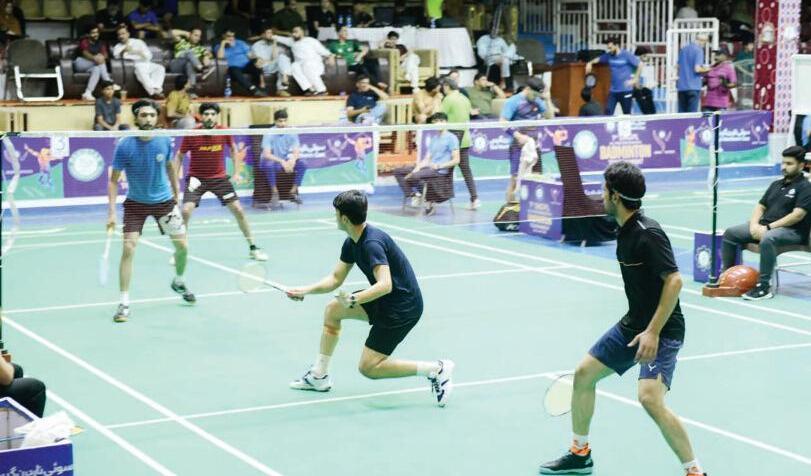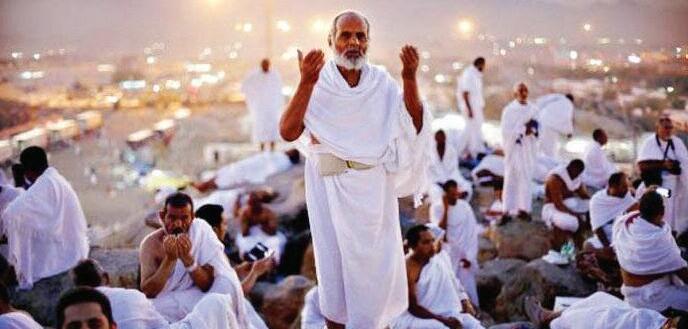An open wound
THE Cabinet Committee on State-Owner Enterprises was told that the SOEs had run up an accumulated loss of Rs 5 8 trillion of which Rs 342 billion were lost from July to December 2024 The CCoSOEs was considering a report of SOE performance up to December in its meeting on Friday The SOEs are known to be a burden on the government for a long time, but the state has only now acknowledged that this is the result of poor governance, unfunded pension liabilities, thus eroding fiscal space and undermining business confidence Attention seemed focused on the power sector, with the CCSOEs meeting being informed that cumulative power sector circular debt, oil and gas combined, had crossed Rs 4 9 trillion It must not be forgotten that these losses have to be picked up by the federal government, in other words the taxpayer
The problem is one of management of the callousness of the government Seats on the boards of directors of SOEs are not regarded as vital positions, but as sinecures for bureaucrats, who will earn generous travel allowances for attending board meetings while towing the government’s line Competence apart these people are outsiders, and do not provide the kind of direction to the company that a business enterprise should get The appointments they make of the managers to run the enterprise on a day-to-day basis are based either on seniority or influence, neither of which makes for good business leaders The result is before us all: SOEs are a burden on the budget The justifications for SOEs; that they provide employment; that they allow the government to provide services which private enterprise might not; that they provide import substitution; all do not wash when they meet the inexorable argument of affordability
Indeed, the CCSOEs is paying such close attention because they form the core of the government s commitments to the IMF about privatisation One of the IMF’s major concerns is about the power sector and the circular debt owed by the SOEs involved Some of its concerns may be met by the Rs 3 69 trillion struck with the IPPs and the recent trillion-rupee deal with the banks but while power sector reforms have been accelerated, they have not been completed The sector still has the capacity to pull down the whole edific of government finance The other SOEs are now part of the problem not the solution which is for government to get out of the business of business, where it has no business
Dedicated to the legac y of late Hameed Nizami Arif Nizami (Late) Founding Editor
M A Niazi Editor Pakistan Today Babar Nizami Editor Profit
Crises coming together
Dr MuhaMMaD Tayyab Singhanvi
30°C a once-rare event that has now become common due to the climate crisis leading to thousands of deaths Research indicates that even a 1 C rise in temperature increases interpersonal conflicts by two percent and intergroup violence by 2 5–5 percent When agriculture is disrupted due to water scarcity or crop failure food insecurity worsens amplifying tensions in agrarian regions For example the Sahel region in Africa suffering from severe drought has seen heightened conflict between groups like Fulani herders and local militias This region is now among the worst affected by terrorism and climateinduced violence Wars, in turn, also exacerbate environmental destruction The Ukraine–Russia conflict for instance resulted in an estimated 230 million tonnes of CO2e emissions stemming not just from warfare equipment but also the destruction of infrastructure forest fires and mass displacements The environmental devastation caused by such conflicts further disrupts the ecological balance and accelerates climate change
In South Asia treaties like the Indus Waters Treaty between Pakistan and India are crucial for irrigation and energy security However climate-induced stress and increasing Indian aggression have placed this agreement at risk Heatwaves, droughts, and dwindling water resources are escalating tensions, which could lead to insecurity, migration, and political instability across the region
A UN report highlights that at least 22 regions including Sudan the Palestinian territories Mali and Haiti are facing severe food insecurity with climate shocks being a primary factor The outcome is largescale displacement and profound humanitarian crises If CO2 emissions continue at the current pace for the next three years, the 1 5°C target will become unreachable This would effectively nullify global climate accords such as the Paris Agreement and fuel heightened political
and societal impacts of global warming are evident Recently, a heatwave in southern England approached
Tby B-2 stealth bombers was intended as a decisive blow to Iran s nuclear program However the effects remain murky While the USA claimed the site was completely obliterated," setting Iran s programme back by “several years,” Iran downplayed the damage, admitting to a temporary disruption of “a few months” but insisting that its nuclear scientists engineers and infrastructure remain intact and resolute Even Israeli intelligence agencies and atomic energy officials acknowledged significant damage but were unsure of the long-term impact Then came the contradictory statements from President Trump himself In one breath he asserted that Iran had advance warning and evacuated all personnel saving lives In another he insisted that Iran failed to remove its enriched uranium and sensitive equipment before the attack indicating the material was destroyed
Amid these contradictions, the International Atomic Energy Agency (IAEA) took a professional stance: unless inspectors are allowed back into Iran s nuclear facilities any claims American Israeli or Iranian remain speculative
Amid this narrative warfare, Iran has taken a bold and provocative step In a sharp rebuke to the international community Iran’s parliament passed legislation permanently banning
IAEA inspectors from accessing any of its nuclear facilities Iranian officials accused IAEA inspectors of acting as spies for the USA and Israel, allegedly providing intelligence that aided the airstrike on Fordow While Iran admitted that the site was damaged and pushed back temporarily its leadership emphasized that the knowledge expertise and capability of its nuclear scientists remain undiminished The program, they declared, will not only be restored but advanced beyond previous levels with the strategic advantage of zero international oversight from here forward In a chilling warning an Iranian spokesperson declared that while Iran may not need nuclear weapons to defeat Israel any future confrontation would result in a complete knockdown" of Israel once and for all Iran’s fury wasn’t only directed at the military assault Tehran reserved special condemnation for the IAEA’s Director General accusing him of cowardice and double standards Despite Iran being a signatory of the Nuclear Non-Proliferation Treaty (NPT) and abiding by international protocols, no condemnation came from the agency after the unilateral strike on a sovereign, peaceful state The USA and its Western allies justified the attack by invoking Israel’s “right to self-defence a phrase that has now become to many in the international community an Orwellian euphemism Iran was not the aggressor It launched no missiles It issued no military threat And yet it was bombed without provocation, without due process, and without international consensus In the same breath Western leaders repeated the refrain Israel has the right to exist as justification not only for the Iran strike but also for Israel s campaigns in Gaza, Lebanon, Syria, and beyond But global patience is wearing thin A fiery speech in the European Parliament recently captured this moral exhaustion “I’m sorry a female member of parliament declared that we could not protect the Palestinian children I m sorry for the hospitals we failed I m sorry for the doctors, paramedics, and UN staff killed by Israeli bombs We’ve lost our ethics We’ve lost our moral compass And with that, we’ve lost our humanity ”
What is emerging in 2025 is a historic pivot in global opinion The sympathy that Israel once commanded has eroded For the first time, we are witnessing a near-consensus backlash against Israeli militarism and Western hypocrisy Enter Zohran Kwame Mamdani the newly elected Muslim mayor of New York City, whose bold remarks have gone viral across the globe He announced an aggressive clampdown on New York-based charities funneling millions into illegal Israeli settlements He vowed to shut down financial channels that siphon taxpayer funds to build settlements on stolen land at the expense of the original Arab and Palestinian inhabitants Even more striking was his legal stance: Mamdani has pledged to arrest Israeli Prime Minister Benjamin Netanyahu if he ever sets foot in New York City invoking the International Criminal Court s warrant for war crimes Netanyahu Mamdani declared bluntly is a war criminal This represents not just a political shockwave it’s a symbolic break from decades of blind support Israel’s aura of invincibility is now under siege not from Iranian bombs but from collapsing global credibility
Despite its nuclear arsenal advanced technology and unmatched military capabilities in the region, Israel has failed to crush Iran s strategic depth or dismantle its deterrent capability Iran has now proven that without even using nuclear weapons it can survive retaliate and escalate on its terms
Moreover criticism is no longer limited to outsiders Even within Jewish communities worldwide, dissent is growing Increasingly, Jewish intellectuals, religious leaders, and diaspora voices are questioning the direction of Israeli policies Many argue that Israel has become the most dangerous place on Earth for Jews themselves Why? Because in the name of security Israel is isolating itself diplomatically and endangering Jewish lives through perpetual war Jews live peacefully in countries across Europe, Asia, and the Americas without fear of daily missile strikes Only in Israel do they live under constant threat surrounded by adversaries created by their government s own aggressive actions What began as a US airstrike on Fordow has ignited a crisis that now spans nuclear diplomacy, global ethics, and public opinion The USA Israel and their allies hoped to showcase strength but may have instead exposed weakness Iran may have lost centrifuges but it has gained something more powerful: global sympathy, diplomatic leverage, and internal resolve Israel, once seen as
Don't trust the colonisers
QaMar baShir
TIsrael s relentless military campaign throughout the Middle East is at the core of the recent chaos Israeli jets launched a series of strikes against suspected Iranian assets in Syria and Lebanon under the pretence of "defensive operations " The number of civilian casualties increased Hospitals were destroyed Once more the world watched as Tel Aviv used its immunity which was provided by US support and international silence
These attacks, according to the Israeli government were preventative actions against Iran's growing regional influence In-
dependent European intelligence reports, however, paint a different picture, one of inflated threats, false nuclear claims, and clandestine operations meant to entice Iran into a wider war Over 2 400 civilians were killed by Israeli operations outside of Israel s borders in 2023 alone, including hundreds in southern Lebanon and Syria, according to the UN Office for the Coordination of Humanitarian Affairs Precision-guided bombs dropped in heavily populated areas were the cause of many of these deaths; they were hardly defensive in nature Iran which has long been the object of Western sanctions and Israeli animosity, reacted quickly and forcefully Not only with words, but also with cyberwarfare, drones, and ballistic missiles The extent of the retaliation shocked the entire world
According to reports Iranian proxy groups attacked a number of Israeli-affiliated intelligence posts in Qatar on May 9, thrusting the Gulf state into the centre of a geopolitical nightmare The Al Udeid Air Base, which is home to more than 10,000 US and coalition personnel was just barely hit by missiles Threat levels in the Middle East were raised by the US military An important ally of the USA and a centre of diplomacy Qatar was forced to walk a tightrope Despite not taking sides, it denounced the violence For the first time, the richest and most neutral territory in the Gulf was directly under the shadow of a regional conflict
The USA has had a conflicting role in Middle Eastern conflicts for decades and this time was no exception On the one hand, the USA vetoes every significant UN resolution against Tel Aviv, gives Israel more than $3 8 billion in military aid each year and keeps supplying the weapons used in attacks against targets in Gaza Syria and now Iran
The administration of President Biden on the other hand, has called for "restraint" on numerous occasions while avoiding holding Israel responsible Washington refrained
from denouncing Israel's initial provocations even after Iranian retaliation reached US military zones Within 48 hours oil prices rose by 15 percent The world stock market trembled Any broader conflict could cut 1 2 percent off the world's GDP in a quarter, the IMF warned In other words, Israel was the trigger, and the global economy was held hostage Donald J Trump s voice unexpectedly broke through the chaos during the storm
After destroying the Iran Nuclear Deal and ordering General Qassem Soleimani s assassination in 2020, the US president assumed a new role: peacemaker
Trump personally used backchannel channels to communicate with Saudi Qatari and even Israeli officials according to leaks from Gulf diplomatic circles He reportedly asked Netanyahu to de-escalate before this turns into a war the world cannot afford "
Despite its bluntness, his message resonated Trump threatened "unimaginable global fallout" if Israel launched a preemptive nuclear strike or if Iran retaliated fully According to an unnamed diplomat Trump wasn t attempting to save lives He was working to preserve the global economy and possibly his own legacy
The actual, current threat of nuclear war was what made this conflict more terrifying than any others
According to the International Atomic Energy Agency (IAEA) Iran s uranium enrichment levels approached 60 percent, which is dangerously close to weaponsgrade Israel is thought to have more than 90 nuclear warheads, despite never having confirmed this officially Neither side blinked in public According to analysts Armageddon could be triggered by a single cyberattack gone awry an Israeli submarine misfiring or an Iranian counterattack that goes too deep
Many people view Israel's military doctrine, known as the "Samson Option," as a global threat masquerading as national defence It theoretically permits a nuclear response in existential situations
Palestinians were still under siege as attention turned from Gaza to Iran In the last 18 months alone, more than 35,000 people have died in Gaza Entire communities were destroyed Hospitals turned into mass graves
According to reports however Trump is now trying to mediate a ceasefire agreement between hardline Israeli officials and Hamas intermediaries in Gaza, leveraging his renewed prominence The objective? a brief ceasefire before the area erupts once more
According to insiders Trump is pressuring

Netanyahu with pressure from Europe the Gulf and Egypt One thing is certain regardless of the outcome of the negotiations: Trump is once again in the spotlight Trump's name keeps coming up in international crises from Taiwan and Ukraine to North Korea and now the Gulf He is campaigning as a global negotiator in addition to being a president Growing support for Trump s direct brazen, and frequently successful foreign policy approach is evident in polls conducted in Europe and Latin America His unpredictable nature which was once viewed as dangerous is now seen as a strength Trump s strategy appeals to both authoritarian governments and weak democracies in contrast to Biden s paralysis and NATO s diplomatic exhaustion Is this a planned diplomatic comeback to power? Israel continues to pose one of the biggest threats to international peace Israel has violated international law repressed the Palestinian people destabilized neighbors and drawn superpowers into never-ending wars for more than 70 years while operating with impunity The USA has blocked or disregarded more than 50 UN resolutions that denounce
preparing for an aerial strike against Iran
THE US seems to have learned no lessons from the post-Cold War phase of its unilateralism and regime-change policies in the Middle East Instead of a new peaceful and stable order being established under Washington s tutelage it ended in the collapse of countries – not merely regimes –chaos civil war and the rise of Islamic extremism and terrorism
It is not clear what legitimate US core interests were served by its military interventions to re-order the political forces in the region
If the objective was also to remove regimes that were a threat to Israel s security and erode Russian influence in the region some success may have been achieved in Iraq and Syria, though in a divided Libya Moscow seems to have gained ground Giving Israel a freer hand in Lebanon and Syria and a virtual carte blanche in Gaza and in the West Bank too may have in the short term given it an upper hand in se-
curity terms but longer term the answer to Israel s security dilemmas may not lie in asserting its regional hegemony with the backing of the US Israel has long viewed its core security challenge as emanating from a nucleararmed Iran It has worked hard over the years to mobilize US and European opinion against Iran s nuclear program That this program has been subject to stringent International Atomic Energy Agency (IAEA) safeguards has not reduced the virulence of Israel s campaign against it Israel has for years raised the specter of Iran becoming nuclear within months or even weeks even though no proof is produced to support this belief The IAEA has not backed Israel s allegations These Israeli claims have resonated in the pro-Israel lobbies in the US to the point that President Donald Trump in his first term repudiated the nuclear agreement signed between Iran and the five permanent members of the UN Security Council (China, France, Russia, the UK and US) plus Germany Under this agreement, Iran had accepted severe and even humiliating curbs on its nuclear program as a sovereign country which included highly intrusive monitoring by the IAEA In his second term Trump sought to negotiate a new, much tougher, nuclear agreement with Iran that would deny it even some rights it had under the first one A couple of rounds of talks took place and the date for another round had been slated These talks were being held under the shadow of timelines and intimidating ultimatums by Trump
It is not improbable that the US was engaged in a show of negotiations while actually
With Hamas and Hezbollah decimated and regime change having been carried out in Syria, Iran’s hand was greatly weakened vis-à-vis Israel Prime Minister Netanyahu evidently calculated that this was the most opportune moment to do the unthinkable –attack Iran militarily and open the door to US military intervention in support of Israel
In other words, for Israel the objective would be to prevent any possible negotiated agreement between the US and Iran and for Trump to seize the opportunity to eliminate Iran s nuclear capability by force in particular its underground facilities with the use of B2s armed with bunker-busting bombs
PEACE PRIZE PATH
That Trump has chosen a military solution over a negotiated one is a throwback to US unilateralism and regime-change policies The US attack on Iran is a gross violation of international law It infringes the UN Charter The US had no mandate from the UN Security Council to act against Iran
There is no provision in the Non-Proliferation Treaty (NPT) that would allow the recognized nuclear powers to eliminate a suspected nuclear program of a non-nuclear state in violation of the Treaty The US attack also cannot be justified as a pre-emptive one as Iran was not threatening to attack the US The rhetoric of a rules-based international order has been exposed for what it is
The irony is that Trump’s election rhetoric was against the US getting involved in wars abroad which he believed had drained America s resources His MAGA base wanted the US to focus on domestic priorities Trump projected himself as against wars
Gold glitters as mistrust spreads
as such, as someone who would work to end conflicts His position on the Ukraine conflict reflected this His unfounded claim that he brokered a ceasefire between India and Pakistan as well as his offer to mediate between the two countries on Kashmir, is part of how he projects himself as a peacemaker He now claims to have brokered an agreement between Rwanda and Congo and between Egypt and Ethiopia among others His efforts should as he says entitle him to four or five Nobel Peace Prizes
Pakistan tried to capitalize on Trump s obsession with a Nobel Prize by officially nominating him for one after his unprecedented invitation to a foreign military chief (the Pakistani field marshal) to lunch with him at the White House This ploy recoiled on Pakistan when virtually the next day Trump attacked Iran militarily Trump believes that now summoning Israel and Iran to a ceasefire shows his commitment to peace Unsurprisingly, his supporters in the US Congress have nominated him for the Nobel Prize While Netanyahu publicly speaking of killing Ali Khamenei Iran s spiritual leader is one thing Trump visualizing the possibility of assassinating him at an opportune moment on his social media account is egregious Such talk of political assassination are being normalized in diplomatic discourse Trump has also not ruled out regime change in Iran potentially causing chaos in a country of over 90 million A PAUSE IN A LONG-TERM CONFLICT
A ceasefire between Israel and Iran, even if it holds, is simply a pause The underlying issues remain unresolved Iran needs to give up its rhetoric that Israel has no right to exist It is most unlikely that Iran will give up its nuclear program and its rights under the
NPT Iran has decided to end the monitoring of its program by the IAEA Iran has accused the agency head of leaking information about its nuclear scientists to the US and Israelis and facilitating their assassination Meanwhile, the whereabouts of Iran s highly enriched uranium are not known There are also some doubts about the extent of damage caused to Iranian nuclear sites by the US bombers and therefore the assessment is that Iran s program could be revived quickly enough Russian Foreign Minister Sergey Lavrov has questioned the integrity of IAEA Chief Rafael Grossi for pressuring Iran to allow renewed access to its nuclear facilities Meanwhile, the US
Fed officials have long taken pride in having the world’s biggest gold vault, dug 80ft down into Manhattan’s bedrock But they prefer to keep it discreet, par tly because many of the vault’s 507,000 bars belong to countries such as Germany and Italy
finance system Now, however, figures in the Trump team including Stephen Miran, chair of the Council of Economic Advisers and Scott Bessent Treasury secretary are chafing against the cost of this system Thus the question that investors need to ask is what other countries might do if trade wars spawn capital battles as well In Asia, this debate is already under way, as investors look for diversification One sign is surging gold purchases Another is that recent unusual price movements in Hong Kong markets suggest a reluctance to buy dollar assets Meanwhile, Chinese officials are hailing the rising use of the renminbi in trade invoic-
Farzeen nadeem











